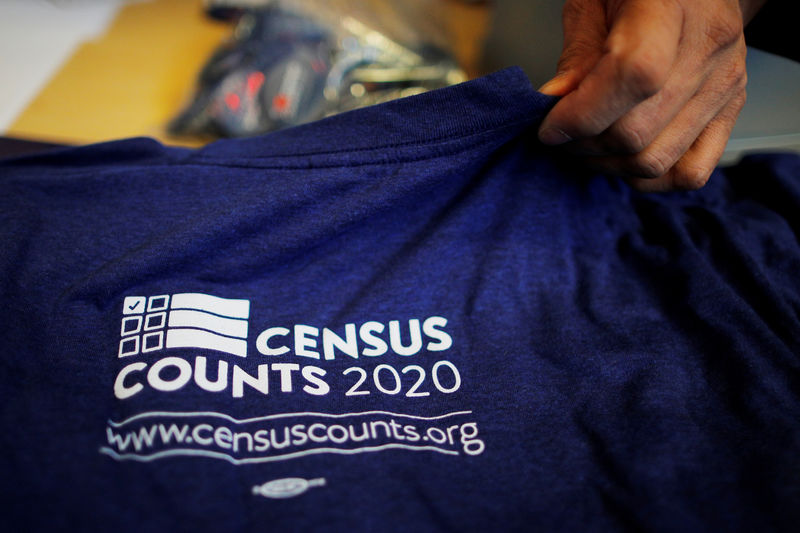By Brendan Pierson
NEW YORK (Reuters) - The Trump administration concealed evidence that its proposal to add a question about citizenship to the 2020 U.S. census was intended to help Republicans draw favorable electoral maps, according to immigrant advocacy groups that sued the administration over the question last year.
In a filing in Manhattan federal court on Thursday, the groups said that the administration hid the fact during the course of the lawsuit that went to trial last year that Thomas Hofeller, a longtime Republican specialist on drawing electoral districts, played a "significant role" in planning the citizenship question.
The conservative-majority Supreme Court is due to issue a final ruling by the end of June on whether the question can be added in time for next year's census.
The challengers notified the high court about the new documents in a letter filed at the court on Thursday afternoon. They did not ask the Supreme Court to take any specific action.
The plaintiffs, which include the Arab-American Anti-Discrimination Committee and Make The Road New York, learned of Hofeller's role after his files came to light in separate litigation in North Carolina in which Republican-drawn electoral districts are being challenged.
A Justice Department representative said the allegations were a "last-ditch effort to derail the Supreme Court’s consideration of this case."
"The Department looks forward to responding in greater detail to these baseless accusations in its filing on Monday,” the person said.
Manhattan-based U.S. District Judge Jesse Furman blocked the question's inclusion following the trial, but the Supreme Court appeared poised to overturn that ruling at April's oral argument.
According to Thursday's filing, Hofeller concluded in a 2015 study that asking census respondents whether they are U.S. citizens "would clearly be a disadvantage to the Democrats" and "advantageous to Republicans and Non-Hispanic Whites" in redistricting.
Hofeller went on to ghostwrite a draft letter from the U.S. Department of Justice to the Department of Commerce, asking for a citizenship question on the grounds it would help enforce voting rights, according to the plaintiffs.
The plaintiffs, represented by the American Civil Liberties Union, said that administration officials gave false testimony about the origin of the question during the lawsuit, and have asked Furman to consider imposing unspecified sanctions against them.
Furman has scheduled a hearing on the request for June 5.
Reuters reported in April that the Trump administration believed its citizenship question could help Republicans in elections by enabling states to draw electoral maps based only on citizen population, rather than total population.

Opponents have said a citizenship question would cause a sizeable undercount by deterring immigrant households and Latinos from filling out the census forms, out of fear the information would be shared with law enforcement. That would, they argue, cost Democratic-leaning areas electoral representation in Congress and federal aid, benefiting President Donald Trump’s fellow Republicans and Republican-leaning parts of the country.